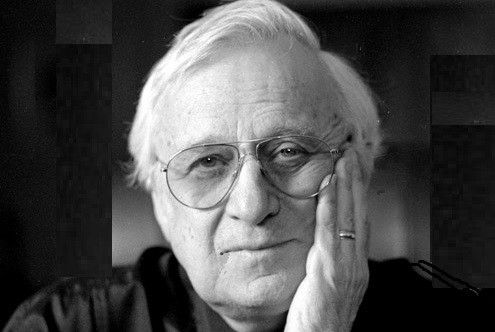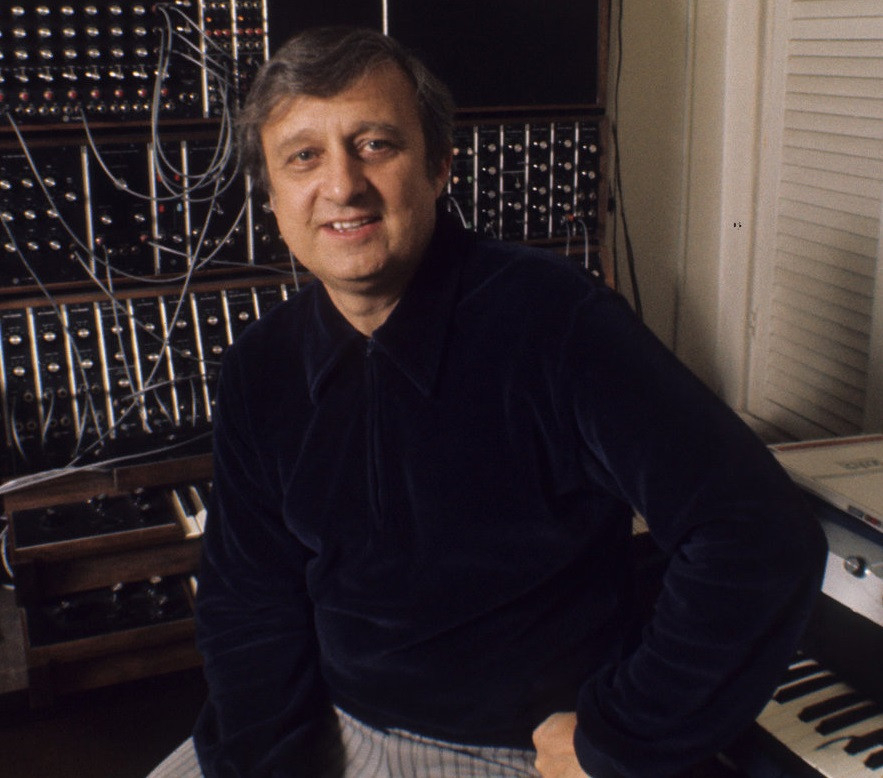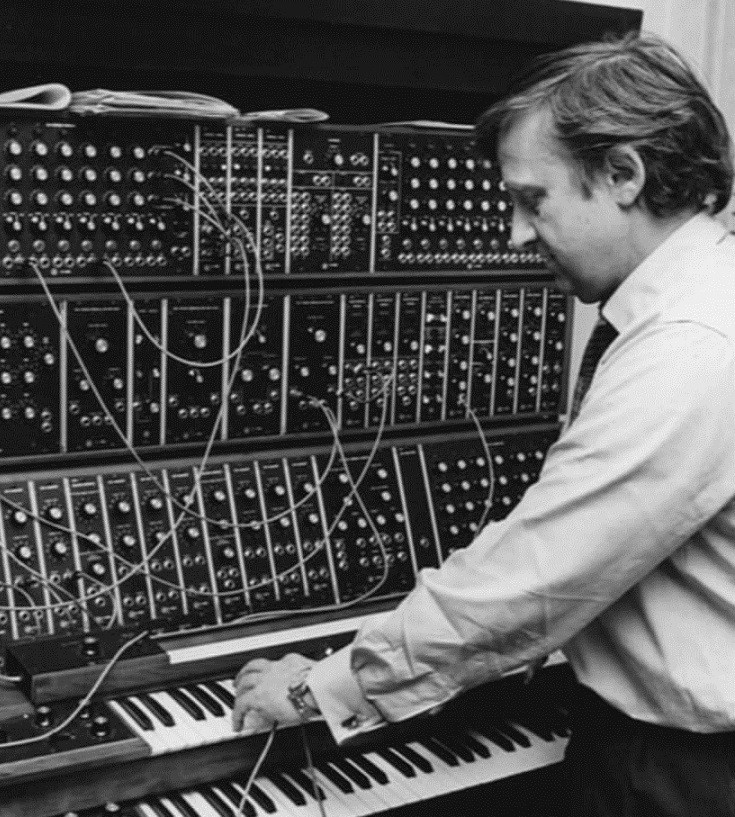Gershon Kingsley, Master of Electronic Sounds, Dies at 97
By Jon Pareles Published Dec. 15, 2019 Updated Jan. 8, 2020
Gershon Kingsley, a composer who brought electronic sounds into popular music and wrote the enduring instrumental hit “Pop Corn,” died on Dec. 10 at his home in Manhattan. He was 97.
His daughter Alisse Kingsley announced the death.
Mr. Kingsley was an early convert to the Moog synthesizer in the 1960s. He used it to create music for commercials and to orchestrate perky melodies — most notably “Pop Corn,” an instrumental originally released on Mr. Kingsley’s 1969 album “Music to Moog By.” It became a best seller and was remade (usually renamed “Popcorn”) in hundreds of versions: by Herb Alpert & the Tijuana Brass, Aphex Twin and the Muppets, among others.
A 1972 version of “Popcorn” by Hot Butter made the song an international hit, and a 2005 remake for the animated character Crazy Frog became a major hit in Europe.
In a prolific career, Mr. Kingsley wrote a concerto for four Moogs, as well as musicals, operas, oratorios, cantatas, movie soundtracks and a rock version of Jewish Sabbath services. His music was also heard widely without his name attached.
His racing seven-second synthesizer crescendo has accompanied the logo of the Boston public television station WGBH since 1971.
Gershon Kingsley was born Goetz Gustav Ksinski on Oct. 28, 1922, in Bochum, Westfalia, Germany. His father, Max Ksinski, was a carpet dealer and pianist; his mother, Marie Christina, was a homemaker who converted from Roman Catholicism to her husband’s religion, Judaism.
Did you know you can share 10 gift articles a month, even with nonsubscribers?
Share this article.
He grew up in Berlin, but in 1938, a few days before Kristallnacht, he fled to what was then Palestine and later became Israel. (His parents reached the United States by way of Cuba.) Mr. Kingsley farmed on a kibbutz and served in the British colonial army in Palestine. He also taught himself to play piano and attended the Jerusalem Conservatory.
He went to the United States in 1946 and studied at the Los Angeles Conservatory of Music (now the California Institute of the Arts). He was a musical director for Los Angeles synagogues and a conductor for summer stock theater in Sacramento. He chose the name Gershon after the son of Moses; Gershom translates as “stranger there.”
Mr. Kingsley moved to New York in 1956 and became a conductor for Broadway and Off Broadway theater. He was the musical director for Laurence Olivier in “The Entertainer,” for Josephine Baker concerts at Carnegie Hall and on Broadway, for a 1964 revival of Marc Blitzstein’s “The Cradle Will Rock,” for the Robert Joffrey Ballet, and for a television special with Lotte Lenya, “The World of Kurt Weill.”
Mr. Kingsley grew interested in electronic music while working as a staff arranger for Vanguard Records in the mid-1960s, accompanying the singer-songwriter Buffy Sainte-Marie, the tenor Jan Peerce and others.
It was the French musician Jean-Jacques Perrey who introduced Mr. Kingsley to electronic music, made by splicing together synthesized tones recorded on tape from an early electronic instrument, the Ondioline.
Around the same time, Mr. Kingsley encountered the early Moog synthesizer, which he recalled in a 1993 interview as “this strange contraption that looked like an elephant switchboard and made sounds I’d never heard before.”
He met Robert Moog, the inventor of the Moog synthesizer, in 1969. Mr. Moog (which rhymes with vogue) tried to explain its circuitry to him. “I remember saying, ‘Mr. Moog, I’m a musician, not a scientist,’” Mr. Kingsley said, to which Mr. Moog replied: “Don’t you understand? This is the future!”
He bought one with his savings — a major investment of $3,500, the equivalent of nearly $25,000 today — but he recouped it by composing music and sounds for commercials.
Collaborating as Perrey-Kingsley, Mr. Kingsley and Mr. Perrey made albums beginning with “The In Sound from Way Out!” in 1966. (The Beastie Boys reused that album title for their 1996 album of instrumentals; they also had Mr. Kingsley record a new hip-hop-flavored version of “Popcorn.”)
Perrey-Kingsley’s 1967 album “Kaleidoscopic Vibrations: Spotlight on the Moog” included “Baroque Hoedown,” mixing harpsichord and synthesizers; it has been heard daily at Disneyland since 1972 backing the Main Street Electrical Parade.
After the two went their separate ways, Mr. Kingsley further embraced the Moog. His 1969 album, “Music to Moog By,” included his first version of “Pop Corn.”
Although the early Moog was an unwieldy studio instrument, Mr. Kingsley formed the First Moog Quartet for live performances: four synthesizer players backed by a four-piece band and singers. Their 1970 debut at Carnegie Hall, with Robert Moog in attendance, was a multimedia production with films and dancers, offering arrangements of Bach and Beatles material along with Mr. Kingsley’s own music.
Reviews were mixed, or worse. Peter G. Davis of The New York Times wrote: “Both arrangements and the original material by Mr. Kingsley were threadbare of musical substance. When they were audible, the four Moogs sounded rather like calliopes on a merry-go-round.”
But Arthur Fiedler, the conductor of the Boston Pops Orchestra, asked Mr. Kingsley to write a piece for Moog quartet and orchestra. The Pops concert was televised, and “Concerto for Moog” drew broad interest.
An early convert to the Moog synthesizer, he wrote a concerto for four Moogs as well as musicals, operas, oratorios, cantatas, movie soundtracks and a rock version of Jewish Sabbath services.
The First Moog Quartet toured on its own and performed with orchestras in the early 1970s. Hot Butter, which made the 1972 hit version of “Popcorn,” was formed by Stan Free, a member of the First Moog Quartet.
Mr. Kingsley was urged by his record company to write follow-ups to “Popcorn,” and he came up with other tracks named after food, like “Sauerkraut” and “Cold Duck,” which became a minor hit in France. “The Moog is an instrument with a sense of humor,” he told The Times in 1972.
Mr. Kingsley composed far more than zippy novelty tunes. His music straddled popular, classical and avant-garde styles, from jazz, rock, electronic dance music and new age to Baroque, Minimalism and sonic experiments.
Many of his larger works were devoted to Jewish spirituality and culture and to Holocaust remembrance.
In 1969 he wrote a rock version of the Jewish Sabbath service, “Shabbat for Today,” which was taken up by congregations worldwide. The New York Philharmonic performed Mr. Kingsley’s 1971 oratorio, “What Is Man?,” which was based on the Talmud and called for singers, orchestra, electric guitar and two Moogs. “The Fifth Cup,” a Passover rock opera from 1974, featured the singer and actor Theodore Bikel.
A theatrical concert work based on poetry from the Holocaust, “Voices From the Shadow,” had its premiere in 1998 at Lincoln Center in New York. Mr. Kingsley also wrote “Selma,” a song cycle based on the Holocaust poetry of Selma Meerbaum-Eisinger. And a 2006 compilation album, “God Is a Moog,” gathered decades of his spiritually themed music, including “Is There Only One?,” questioning monotheism in a mix of cantorial singing and Gregorian chants.
In 2008 he composed “Raoul,” an opera based on the life of Raoul Wallenberg, who saved thousands of Jews in Hungary.
Mr. Kingsley was married four times. His fourth wife, Lillian Bozinoff-Kingsley, died in 2018. Beside his daughter Alisse, he is survived by another daughter, Melinda Kingsley LaPlaca, and a grandson.
In 1992, Mr. Kingsley marked the 500th anniversary of the arrival of Christopher Columbus in the New World with two works: the musical “Cristobal,” performed at the Union Square Theater in New York, and the opera “Tierra,” performed at the Gasteig Concert Hall in Munich.
Mr. Kingsley also composed meditative new age music in the 1980s and ’90s, with albums including “Much Silence” and “Anima.” Well into the 2010s, he continued to release more music on SoundCloud: lighthearted pop tracks, chamber music, textural experiments and improvisations.
As long as he continued to make music, he told his family, “I’m not ready to decompose just yet.”
ADVERTISEMENT
BY
Looking for more information?

 Amanda S. Stevenson
Amanda S. Stevenson 
 Amanda S. Stevenson
Amanda S. Stevenson 
 Amanda S. Stevenson
Amanda S. Stevenson 